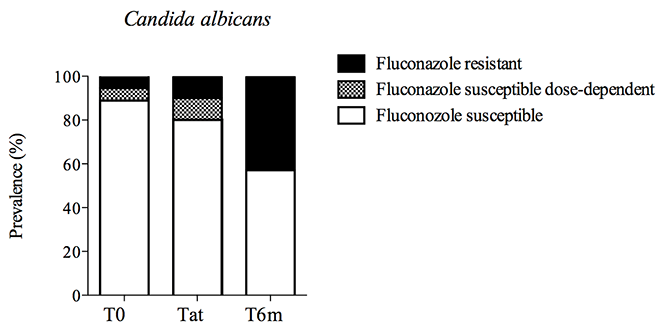RECENT PUBLICATION: Effect of denture-related stomatitis fluconazole treatment on oral Candida albicans susceptibility profile and genotypic variability.
INEB researchers recently published an article in the The Open Dentistry Journal, 9: 46-51, 2015, already available. The article is entitled "Effect of denture-related stomatitis fluconazole treatment on oral Candida albicans susceptibility profile and genotypic variability" and is authored by Figueiral, M.H., P.A. Fonseca, M.M. Lopes, E. Pinto, T. Pereira-Leite, and B. Sampaio-Maia.
Denture-related stomatitis (DRS) is the most common condition affecting removable-denture wearers, and Candida albicans the most frequent pathogenic agent. Systemic antifungal treatment is indicated but recurrences are frequent. The aim of this study was to characterize the oral load, fluconazole susceptibility profile and genotypic variability of oral C. albicans isolates from patients with DRS before (T0), immediately after fluconazole treatment (Tat) and after 6-months follow-up (T6m). In conclusion, fluconazole presents a good short-term DRS treatment efficiency, but may be associated to a long-term emergence of C. albicans fluconazole resistance.

Prevalence of fluconazole susceptibility profile of Candida albicans isolates at the time of stomatitis diagnosis (T0), after treatment (Tat) and 6-months after diagnosis (T6m). Bars represent prevalence.


